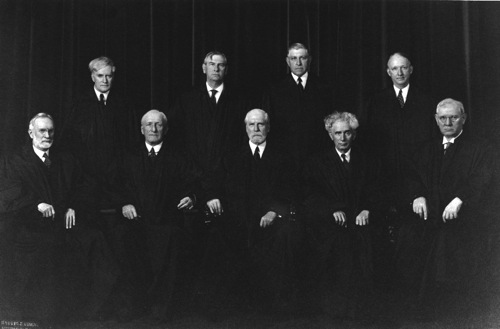











The Carolene Products company manufactured a product known as “Milnut.” This brand of filled milk was made by removing the dairy fat from whole milk and replacing it with coconut oil. Milnut, which did not have any dairy fat, could be stored in cans without refrigeration. Dairy farmers did not welcome this com- petition. As a result, they exercised their considerable political clout to persuade legislators to prohibit filled milk. In 1923, Congress banned the shipment of filled milk in interstate commerce. The United States indicted Carolene Products for shipping Milnut in interstate commerce. The government alleged that filled milk was “an adulterated article of food, injurious to the public health.” Charles Hauser, the president of Carolene Products, argued in court that the Filled Milk Act deprived him of “property without due process of law.” By 1938, the Supreme Court had already established the presumption of constitutionality in cases like West Coast Hotel.
Hauser had very low odds of persuading the Court that the Filled Milk Act was an unreasonable and arbitrary deprivation of his property. Yet the Justices agreed that Hauser must still be given a chance to make that argument.